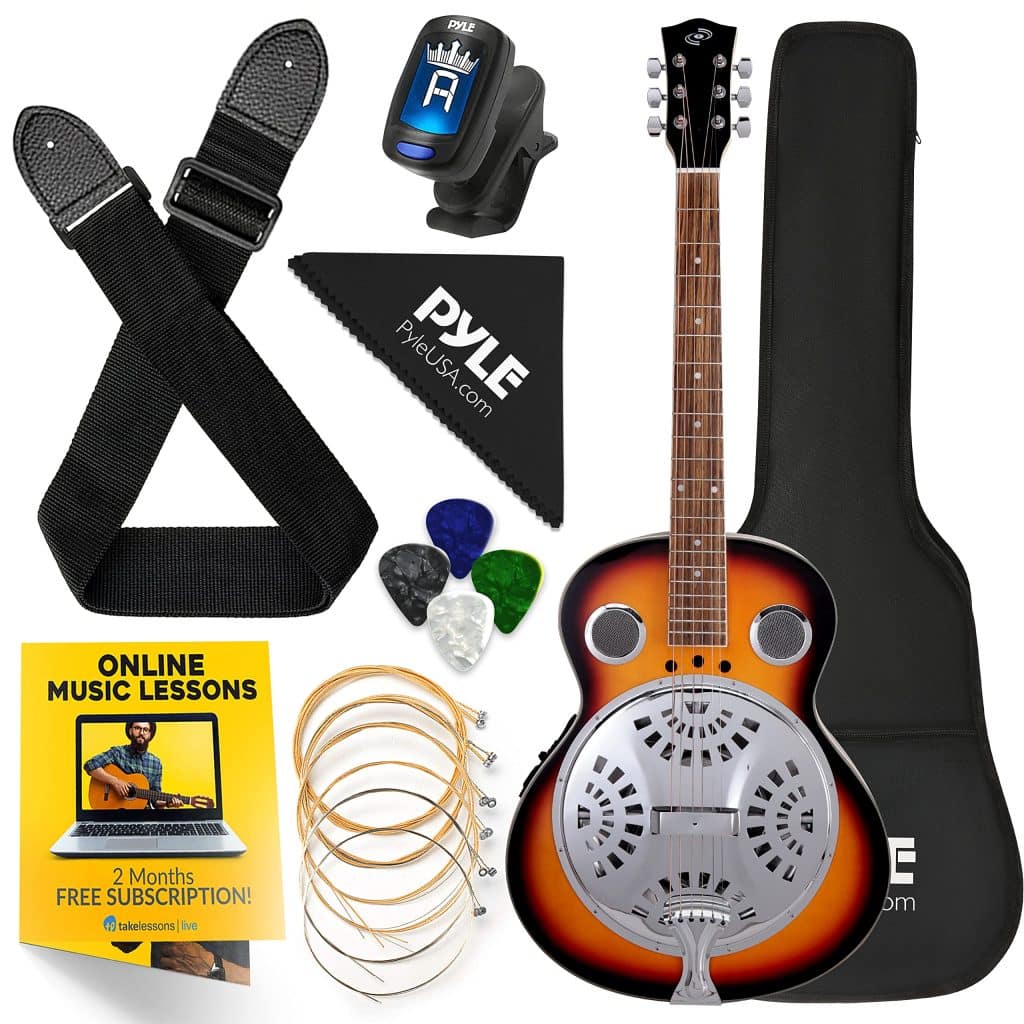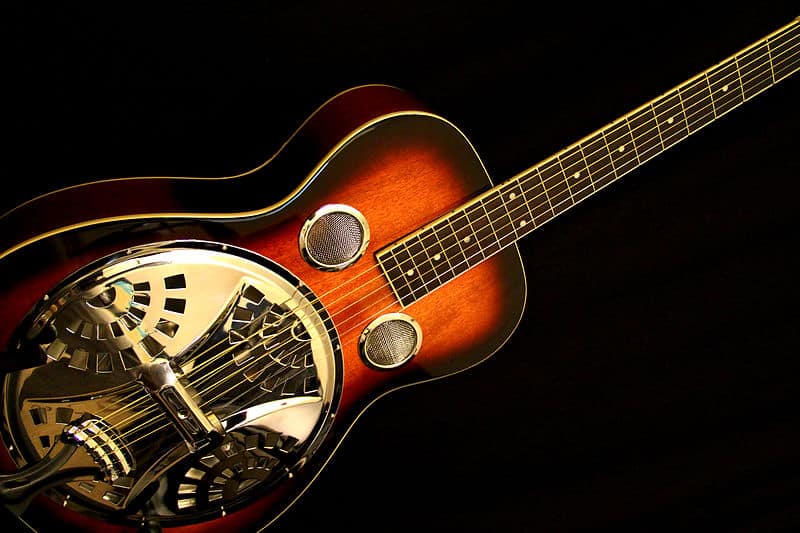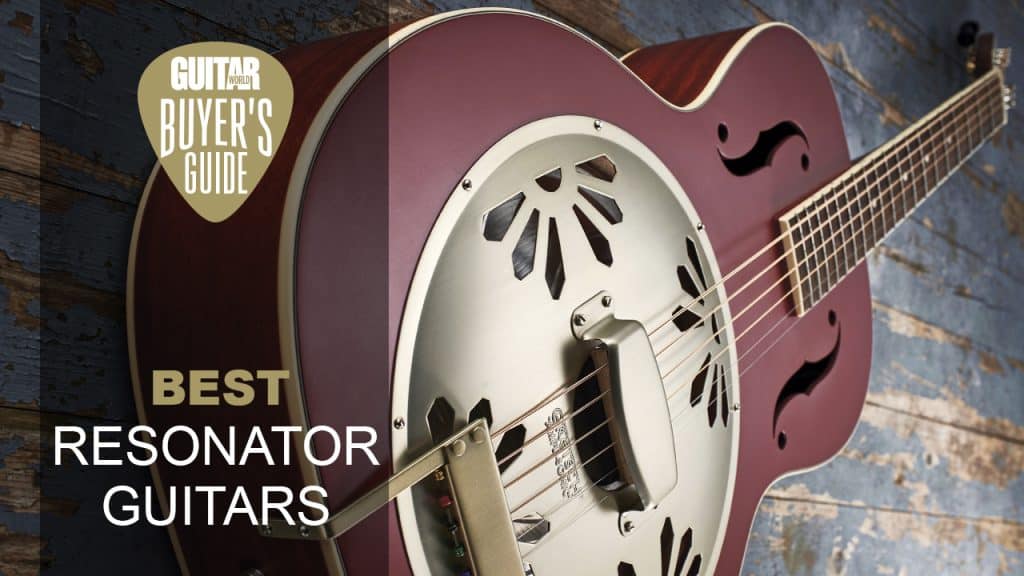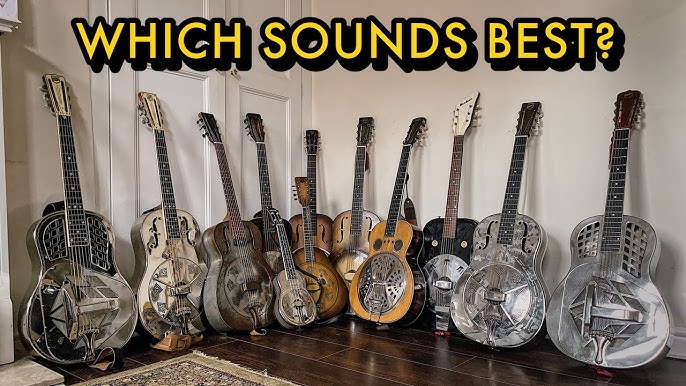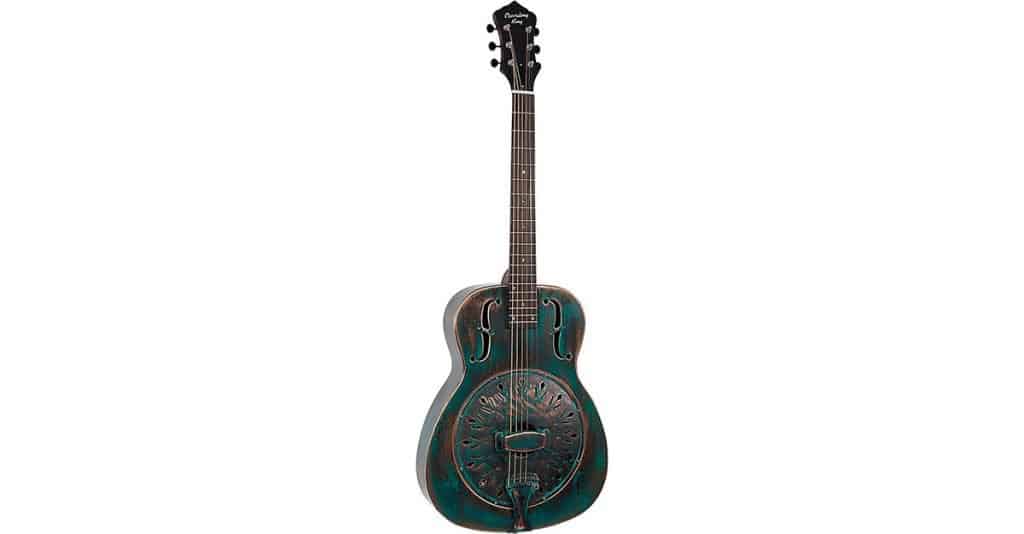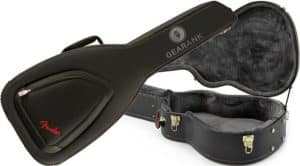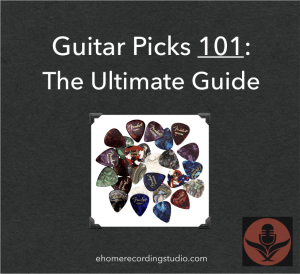If you’ve ever been captivated by the distinct twang and soulful resonance of a resonator guitar, you know that choosing the right one can make all the difference in your musical journey. From the classic designs to the latest innovations, this ultimate guide will equip you with the knowledge and tips you need to find the best resonator guitar to suit your style, budget, and musical aspirations. Whether you’re a seasoned musician or a beginner exploring the world of blues and slide guitar, let’s embark on a melodic adventure together as we uncover the secrets to finding your perfect resonator companion.
The Ultimate Guide to Choosing the Best Resonator Guitar
When it comes to choosing the best resonator guitar, there are several factors to consider. From body style to construction material, resonator types to neck design, each aspect contributes to the overall tone and playability of the instrument. In this comprehensive guide, we will explore the different options available and help you make an informed decision.
Body Style
Dobro-style
Dobro-style resonator guitars feature a single resonator cone mounted directly to the body. They are known for their bright and loud projection, making them particularly well-suited for blues and slide guitar playing. If you are looking for a versatile and powerful instrument, a Dobro-style resonator might be the perfect choice for you.
National-style
National-style resonator guitars are often considered the classic choice. With their distinctive metal body and single resonator cone, they produce a rich and warm tone. National-style resonators are highly regarded for their excellent sustain and unique aesthetics, making them a favorite among blues and folk musicians.
Spider-style
Spider-style resonator guitars, also known as biscuit-style resonators, feature a spider bridge that supports the cone from the center. This design offers a balanced tone with a strong midrange presence. Spider-style resonators excel in fingerstyle playing and are popular among country and bluegrass guitarists.
Bisbee-style
Bisbee-style resonator guitars have a unique design that combines elements from both Dobro-style and National-style instruments. They feature a single resonator cone but with a metal body, similar to National-style resonators. This hybrid construction produces a distinctive tone that falls between the brightness of a Dobro-style and the warmth of a National-style resonator.
Parlor-style
Parlor-style resonator guitars are smaller in size compared to other body styles, making them perfect for players who prefer a more compact instrument. Despite their small size, these guitars can still deliver a remarkable tone. Parlor-style resonators are versatile and can be used in a variety of musical genres, from blues to country and everything in between.
Construction Material
Wood
Resonator guitars with a wooden body offer a warm and organic tone. The wood used for the body can greatly influence the instrument’s overall sound, with mahogany and maple being popular choices. Wood construction provides a classic look and feel, making it a preferred option for traditionalists and those seeking a vintage aesthetic.
Metal
Metal bodies are a trademark feature of resonator guitars. They contribute to the instrument’s unique tone and sustain. Steel and brass are commonly used for metal-bodied resonators, each offering its own sonic characteristics. Metal construction adds a distinctive visual appeal, often associated with blues and old-time music.
Hybrid
Hybrid resonator guitars combine elements from different construction materials, such as a wooden body with a metal resonator cone. This blending of materials aims to achieve a unique tonal balance, providing the best of both worlds. Hybrid resonators offer versatility and can cater to various playing styles and musical genres.
Composition
Resonator guitars made from composite materials, such as fiberglass or carbon fiber, are gaining popularity due to their durability and consistent tone. Composite construction provides stability against temperature and humidity changes, making these guitars reliable instruments for touring musicians. They also tend to have a modern aesthetic, appealing to those seeking a contemporary look.
Custom
For those seeking a truly unique instrument, custom resonator guitars offer endless possibilities. Custom builders can tailor every aspect of the guitar to suit your preferences, from the body style and construction material to the resonator type and more. While custom instruments may come at a premium price, the personalized experience and one-of-a-kind instrument make it a worthwhile investment for serious musicians.
Resonator Types
Single Cone
Resonator guitars with a single cone produce a distinctive sound characterized by a strong midrange and punchy projection. The single cone design offers a bright and cutting tone, ideal for blues, folk, and slide guitar playing. Single cone resonators excel in solo performances and can evoke a vintage and nostalgic feel.
Tri-Cone
Tri-cone resonator guitars feature three smaller cones arranged in a triangle shape, enhancing the instrument’s volume and tonal complexity. The tri-cone design produces a rich and full-bodied sound with impressive sustain. These resonators are well-suited for players who seek a luxurious and sophisticated tone for genres like bluegrass and fingerstyle.
Spider Cone
Spider cone resonator guitars utilize a spider bridge to support the cone, resulting in a balanced and articulate tone. This type of resonator offers clarity and precision, making it favored by country, folk, and acoustic guitarists. The spider cone design is known for its responsiveness, allowing players to achieve expressive dynamics and nuanced playing.
Cone Material
Brass
Brass resonator cones produce a warm and rounded tone with a smooth top-end sparkle. The brass material offers excellent sustain and responsiveness, making it a popular choice for resonator enthusiasts. Brass cones complement a wide range of playing styles, from slide guitar to fingerpicking, and can add a touch of vintage warmth to any performance.
Aluminum
Aluminum resonator cones are known for their bright and lively tone. They offer a quick attack and enhanced projection, making them suitable for genres that require a cutting and vibrant sound. Aluminum cones provide excellent clarity and definition, making them a favorite among bluegrass and slide guitar players.
Steel
Steel resonator cones provide a balanced tone with a strong midrange presence. They offer a versatile sound that can adapt well to various playing styles and genres. Whether you’re strumming chords or playing intricate fingerstyle arrangements, steel cones deliver a consistent and clear sound that cuts through the mix.
Hardened Resonator Alloy
Some resonators feature cones made from a hardened alloy, combining the tonal qualities of various metals. This type of cone material offers a unique blend of characteristics, providing a balanced and well-rounded tone. Hardened resonator alloy cones can deliver both warmth and brightness, catering to different musical genres and playing preferences.
Combination
Resonator guitars with combination cones utilize different materials for the cone and other internal components, such as a brass cone and aluminum soundwell. This combination offers a well-balanced tone with enhanced projection and versatility. Combining different materials allows manufacturers to fine-tune the instrument’s sonic qualities to suit specific playing styles and musical genres.
Neck Design
Round Neck
Round neck resonator guitars have a neck profile similar to a traditional acoustic guitar, allowing for comfortable fretting and chord playing. This design makes them versatile instruments suitable for both slide and standard guitar playing. Round neck resonators are favored by blues and country musicians who want the option to switch between slide and fingerstyle techniques seamlessly.
Square Neck
Square neck resonator guitars are specifically designed for lap-style or slide playing. The square neck profile prevents the instrument from slipping off the player’s lap while emphasizing the slide guitar technique. Square neck resonators typically have a higher action, enabling the strings to be raised above the fretboard for better slide control and sustain.
Scale Length
Short Scale
Short scale resonator guitars have a shorter length between the bridge and the nut, resulting in decreased string tension and a slightly warmer tone. These guitars are favored by those with smaller hands or players who prefer a more comfortable fretting experience. Short scale resonators are also a great choice for those seeking a vintage-inspired sound.
Long Scale
Long scale resonator guitars have a longer length between the bridge and the nut, providing increased string tension and projection. The longer scale length can contribute to a brighter and more articulate tone. Long scale resonators are popular among players who require increased volume and note definition, such as bluegrass or lap-style slide guitarists.
Fretboard Material
Rosewood
Rosewood fretboards are known for their rich and warm tone, offering a pleasant balance between brightness and depth. They provide excellent sustain and smooth playability, making them popular among guitarists of all genres. Rosewood fretboards also have an elegant and classic appearance, adding to the overall aesthetic of the instrument.
Ebony
Ebony fretboards offer a bright and articulate tone with excellent clarity and note definition. They provide a smooth playing surface and are particularly suited for fast and intricate playing styles. Ebony fretboards have a sleek and sophisticated look, often associated with high-end guitars and professional musicians.
Maple
Maple fretboards are favored for their bright and snappy tone, adding clarity and sharpness to the overall sound. They offer fast playability and a smooth feel that can enhance the instrument’s natural sustain. Maple fretboards are often found in resonator guitars designed for genres such as blues, rock, and jazz.
Palmwood
Palmwood is a relatively new alternative fretboard material that offers a unique tonal character. It provides a warm and resonant sound with a pronounced midrange. Palmwood fretboards are known for their comfort and smooth feel, making them an excellent choice for players who prioritize playability and tonal richness.
Composite
Composite fretboards, also known as engineered wood or synthetic materials, offer durability and consistency in tonal performance. They are designed to mimic the tonal properties of traditional fretboard woods while providing enhanced stability against temperature and humidity changes. Composite fretboards offer a modern and sustainable option for resonator guitar players.
String Configuration
6-String
6-string resonator guitars offer the same string configuration as a standard acoustic or electric guitar. They provide a familiar playing experience for guitarists transitioning to a resonator. 6-string resonators offer versatility and can handle a wide range of musical styles, from fingerstyle picking to strumming chords.
8-String
8-string resonator guitars add pairs of octaves to the standard 6-string configuration. This string layout provides a wider tonal range and can produce unique chord voicings and melodies. 8-string resonators are favored by players who seek a fuller and more complex sound, particularly in genres like jazz and experimental music.
12-String
12-string resonator guitars feature six pairs of strings, each pair tuned in octaves. This configuration creates a lush and shimmering sound, adding depth and richness to chords and melodies. 12-string resonators are commonly used in folk, country, and rock music, providing a distinctive and captivating sonic texture.
Custom
Custom resonator guitars allow players to choose their desired string configuration, tailoring the instrument to their specific needs and preferences. Custom string configurations can range from unconventional tunings to specialty setups, catering to individual playing styles and musical genres.
Pickup Options
Acoustic Only
Resonator guitars without pickups are ideal for players who prefer the natural and acoustic sound of the instrument. These guitars offer a pure and unadulterated tone, allowing the resonator’s unique characteristics to shine through. Acoustic-only resonators are often favored by purists and traditionalists who prioritize an authentic acoustic experience.
Acoustic-Electric
Acoustic-electric resonator guitars feature built-in pickups or microphones, allowing players to amplify their sound when performing live or recording. This option offers versatility and flexibility, enabling the resonator to be used in a wide range of musical settings. Acoustic-electric resonators often have onboard preamps and controls for shaping the amplified tone.
Price Range
Budget
Budget resonator guitars offer an affordable entry point into the world of resonator playing. While they may not have the same level of craftsmanship and premium materials as higher-end options, they can still deliver a decent tone and playability. Budget resonators are suitable for beginners or those who are exploring the sound of resonator guitars without making a significant financial commitment.
Mid-Range
Mid-range resonator guitars strike a balance between quality and affordability. They offer improved craftsmanship, better materials, and a higher level of playability compared to budget options. Mid-range resonators are suitable for intermediate players or those looking to upgrade their current instrument without breaking the bank.
High-End
High-end resonator guitars represent the pinnacle of craftsmanship and sound quality. These instruments are meticulously crafted with premium materials, ensuring exceptional playability and tone. High-end resonators are designed for professional musicians and serious enthusiasts who demand the utmost performance and sonic excellence from their instruments.
In conclusion, choosing the best resonator guitar involves considering various factors such as body style, construction material, resonator type, neck design, scale length, fretboard material, string configuration, pickup options, and price range. By understanding the different options available and how they impact the instrument’s sound and playability, you can find the resonator guitar that perfectly suits your musical style and preferences. Remember to try out different models, consult with experts, and trust your ears to make an informed decision. Happy playing!

